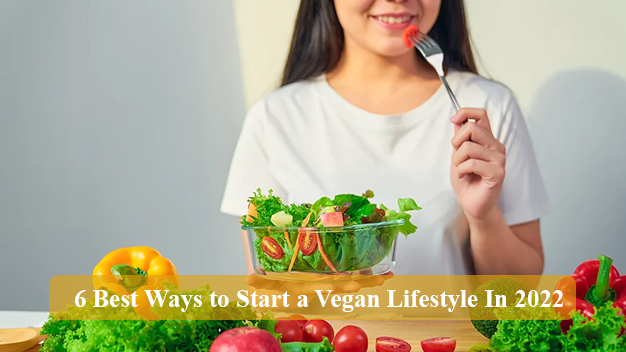Are you contemplating going vegan this year? Are you rethinking your current diet in favor of a more plant-based lifestyle for health reasons, ethical reasons, or just out of curiosity? We are here to help if you are confused about starting a vegan diet.
Veganism, a plant-based diet, has taken the health and food worlds by storm to the extent that some restaurants and eateries now serve only vegan food.
You probably know that vegan diets can be a great approach to eating healthy without ordering food from a restaurant constantly. But what can you do to incorporate a vegan diet into your home and everyday life? The answer lies in learning how to start a vegan diet.
This article will show you how to make a vegan diet plan and provide information on what foods are vegan-friendly and which ones you should avoid. We will also discuss how to stick to this diet plan once you have started and how to improve it.
There are some simple vegan recipes for beginners to get you started on your journey to better health and weight loss.
What Is A Vegan Diet?
A vegan diet refers to a way of life in which no animal is abused or exploited for food, clothing, or other purposes. People following a vegan diet plan consume only plants or foods derived from plants.
The benefits of going vegan include helping lower your risk of certain diseases, helping to lose weight, and protecting the environment.
How to Start a Vegan Diet in 2022?
If you decide to switch to a vegan diet, where should you begin? If you’re considering going vegan, you can choose to throw out all non-vegan foods from your fridge and pantry, but we suggest that you gradually make the transition. Here are some tips that may help you:
1.Increase The Consumption Of Plant-Based Foods
To ease yourself into the vegan diet, begin by adding more vegetables to your meals. As a beginner, you may realize you’ll have to consume a lot more plant-based meals than you ever have, and it may seem not very comforting.
Try to eat two to three more fruits every day eat more salads, search for and learn some simple vegan recipes for beginners. This will help you and your taste buds adjust to eating more vegetables.
2.Learn The Basics Of Vegan Cooking
The good thing about vegetables is that they can usually absorb whatever flavor you add to them. So being vegan does not entail living off lettuce alone or eating bland food.
Make your meals more flavorful by adding herbs and spices or buying a plant-based cookbook to get vegan recipes. There is a good chance you will stick to the meal plan if you cook delicious vegan food.
3.Cut Back On Animal Products Slowly
If you start a vegan diet plan, it may be wise to transition to it instead of going cold turkey gradually. For example, instead of eliminating all meats and eggs at once, consider starting by cutting out meats and leaving eggs as you go.
If you choose to consume more eggs to offset the lack of meat, you will not achieve the results you are seeking. So, after a few weeks, stop eating eggs altogether.
4.Don’t Buy Dairy Products
There are many dairy-free alternatives available at your local grocery store. You can easily give up dairy much easier than you can give up meat and other animal products.
5.Find Alternatives To Meat That Are Vegan
If you are worried about cheating on a new eating plan, find vegan foods alternatives like burgers, ice cream, cheese, and more. This is one of the biggest challenges for new vegans.
6.Take B12 Supplements
This vitamin aids in the metabolism of food in our bodies, keeps our brains functioning properly, and assists in the conversion of food to energy. It is mainly found in animal foods, such as meat, fish, poultry, eggs, and dairy products.
A vegan diet can provide some B12 from fortified cereals or energy bars, but it is best to talk to their doctor about taking a supplement. Most adults require 2.4 micrograms of Vitamin B12.
It is a blessing to live in a time when there are many vegan ice creams and snacks, vegan cheeses that look and taste almost as good as cheese, and meat substitutes that feel just like meat.
Eventually, after weaning yourself off most animal products for a couple of weeks, you will find it much easier to eliminate any remaining animal products and foods from your diet. Your palette will have become familiar with your new meal plan, and you will no longer miss the old food.

